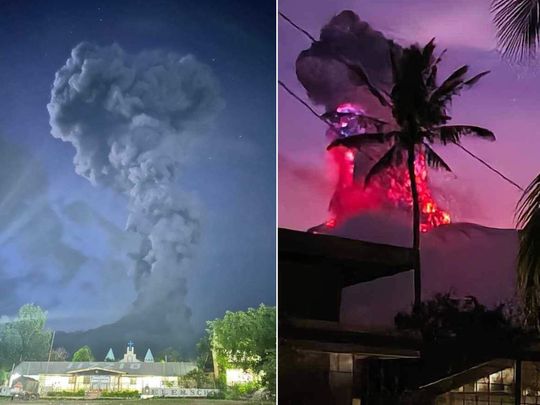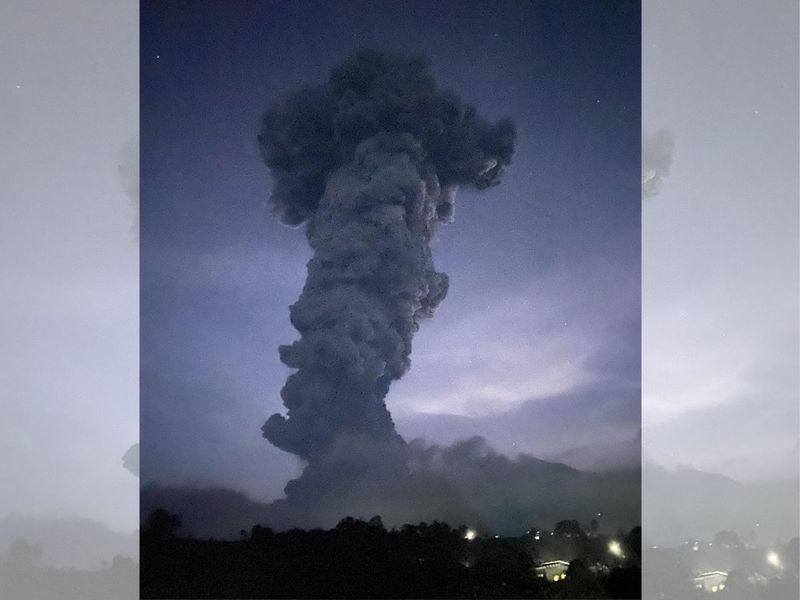
Manila: Kanlaon Volcano in central Philippines erupted early evening on Monday, kicking up a 5,000-metre plume, Filipino volcanologists reported.
Phivolcs stated that a "phreatic eruption" of the volcano on Negros Island is on-going.
What we know so far:
- The explosive eruption occurred at the summit vent of Kanlaon Volcano at 6:51 pm local time (2.51 pm in the UAE) on Monday June 3, 2024.
- The eruption lasted six minutes based on Phivolcs record and was preceded by a relatively strong volcano-tectonic earthquake.
- Volcanologists stated that the eruption produced voluminous and incandescent plume that rapidly rose to 5,000 metres above the vent
- The government has raised the alert level around the volcano from Alert Level 1 (abnormal) to Alert Level 2 (increasing unrest).
- Course ashfall and sulfurous odours have been reported in communities on the western slopes of the volcano.
- Civil aviation authorities advised pilots to avoid flying closer to volcano’s summit as ash from any sudden eruption can be hazardous to aircraft.
Danger zone
The public is strongly advised to be vigilant and avoid the 4-kilometre radius permanent danger zone (PDZ) to minimise the risk from sudden explosions, rockfall and landslides.

In recent days, Phivolcs stated that it seismic network detected dozens of volcano-tectonic earthquakes during, with local magnitudes of 0.8-2.3 and depths of 0-6 km beneath the Western flank.
Sulfur dioxide gas emissions from the summit crater had been elevated since 1 January, averaging 1,291 tonnes/day.
The most recent measurement was 2,003 tonnes per day, recorded on 26 May.











